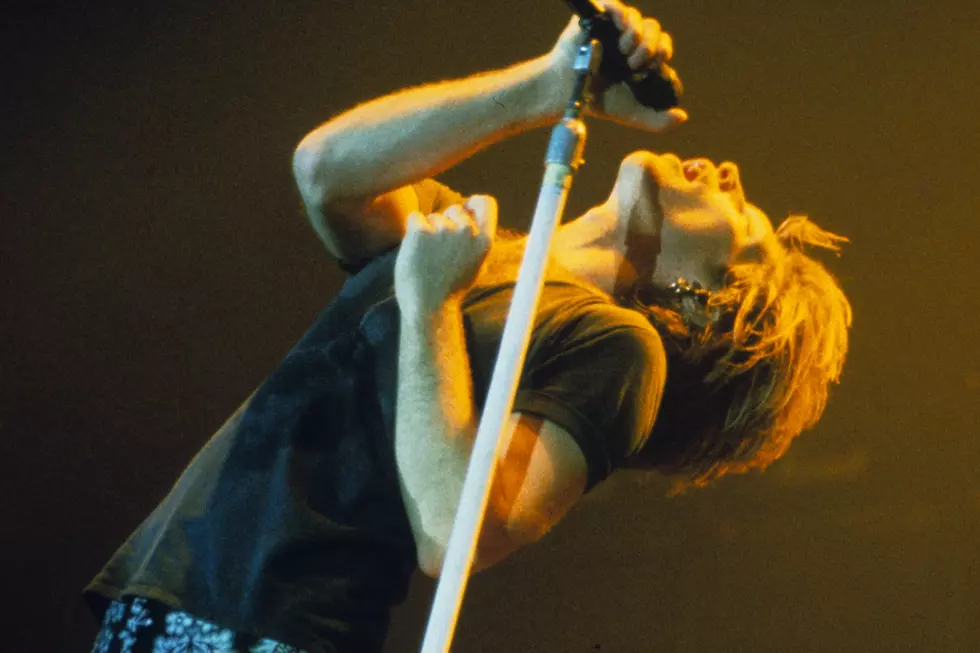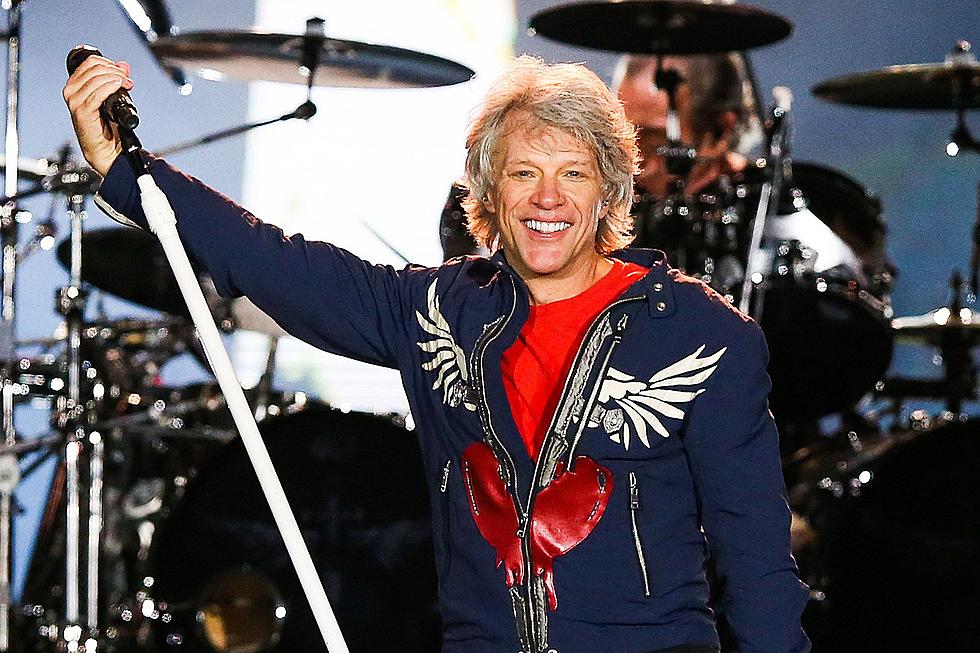
How Jon Bon Jovi Sorta Went Solo With ‘Blaze of Glory’
Frontman Jon Bon Jovi stepped out with his debut solo effort mere months after Bon Jovi's New Jersey album finished running its course at radio.
Released Aug. 7, 1990, the soundtrack to the 1990 Brat Pack cowboy movie sequel Young Guns II — subtitled Blaze of Glory, after the lead-off single — found Bon Jovi stepping out on his own for the first time. Still, as he pointed out repeatedly in interviews for the album, it didn't really represent him as a solo artist.
"This isn't, in fact, a solo project," he stressed. "It is, because I wrote it all and produced it, but it isn't, because if this was truly a Jon Bon Jovi solo album, the parameters I'd write would be very different."
If writing soundtrack music didn't afford Bon Jovi the opportunity to write whatever he wanted, it at least gave him the opportunity to write for characters someone else had invented, which opened the creative floodgates in an unusual way — rather than having to come up with songs that told his own stories, he simply wrote around the characters in the film. Even though Bon Jovi was coming off a manic few years of touring and recording, the Blaze of Glory record came together in a little under two months.
It all started after Jon was introduced to Young Guns star Emilio Estevez, who told him the Bon Jovi hit "Wanted Dead or Alive" had served as musical inspiration for the sequel's screenwriter, and mentioned they were hoping to use the song in the soundtrack for Young Guns II. "I was very pleased, but a little confused, because I realized the lyrics didn't fit their movie, and I could write something in the vein of 'Wanted' for their movie," he recalled. "One song turned into four, which turned into eight, which turned into 10, and I agreed to an album."
Watch Jon Bon Jovi's 'Blaze of Glory' Video
Given the opportunity to put together a new band for the LP, Bon Jovi went all out, recruiting Jeff Beck to play lead guitar on the bulk of the record and getting a piano and vocal cameo out of Little Richard. When he found out that Elton John was cooling his heels in Los Angeles while waiting for drummer Kenny Aronoff to finish with the Blaze of Glory sessions, Bon Jovi added him to the roster of guest artists too. As he put it, "Anybody who poked their head into the studio, I'd drag 'em in."
Always a savvy businessman, Bon Jovi also used the Blaze of Glory project as a springboard of sorts for his next venture, the Mercury-distributed Jambco imprint. Having already written a batch of new songs with the label's flagship signing, Aldo Nova, he brought Nova into the sessions to play an assortment of instruments on the tracks, which then gave him an opportunity to tease Nova's upcoming Jambco debut during interviews for Glory.
In the end, of course, it was Jon Bon Jovi's name on the record, and his voice that sold the songs. Young Guns II failed to live up to the box-office standard set by its predecessor, opening at No. 3 its opening weekend and grossing less than $50 million domestically, but Blaze of Glory was a triple-platinum smash, sending the title track to No. 1 on Billboard's Hot 100 and Mainstream Rock charts and following it with another hit single, "Miracle," later in the year.
Still, while Blaze of Glory outperformed its own movie, there was a lot to be said for tying your solo album (that wasn't really a solo album) to a summer sequel in those days. When Jon Bon Jovi eventually got around to releasing his proper debut, Destination Anywhere, in 1996, it barely managed to sneak inside the Top 40, and he hasn't put out a solo project since. Young Guns III, anyone?
The Most Shocking Rock Star Fashion Reinventions
You Think You Know Bon Jovi?
More From Ultimate Classic Rock









